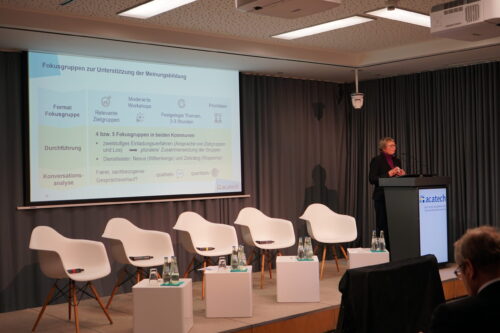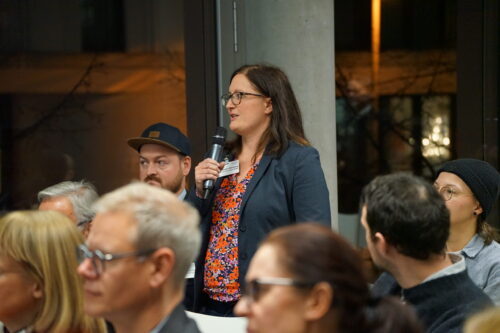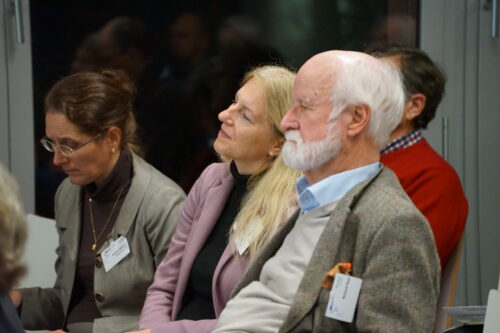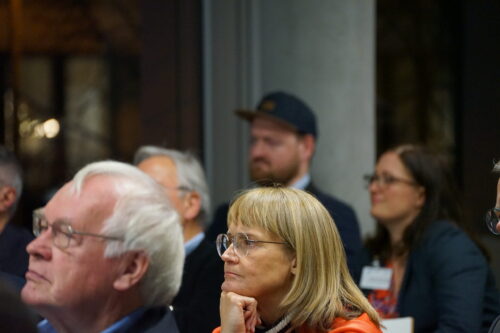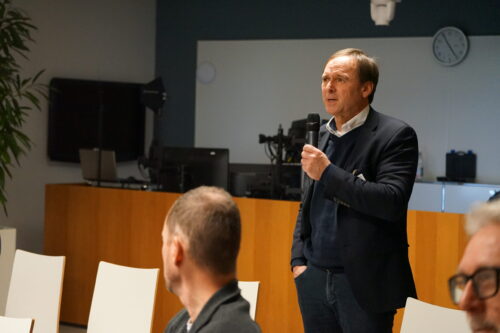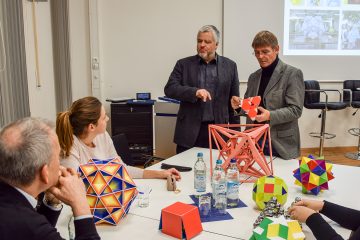How can we shape digital change together? Project group presents findings in Berlin
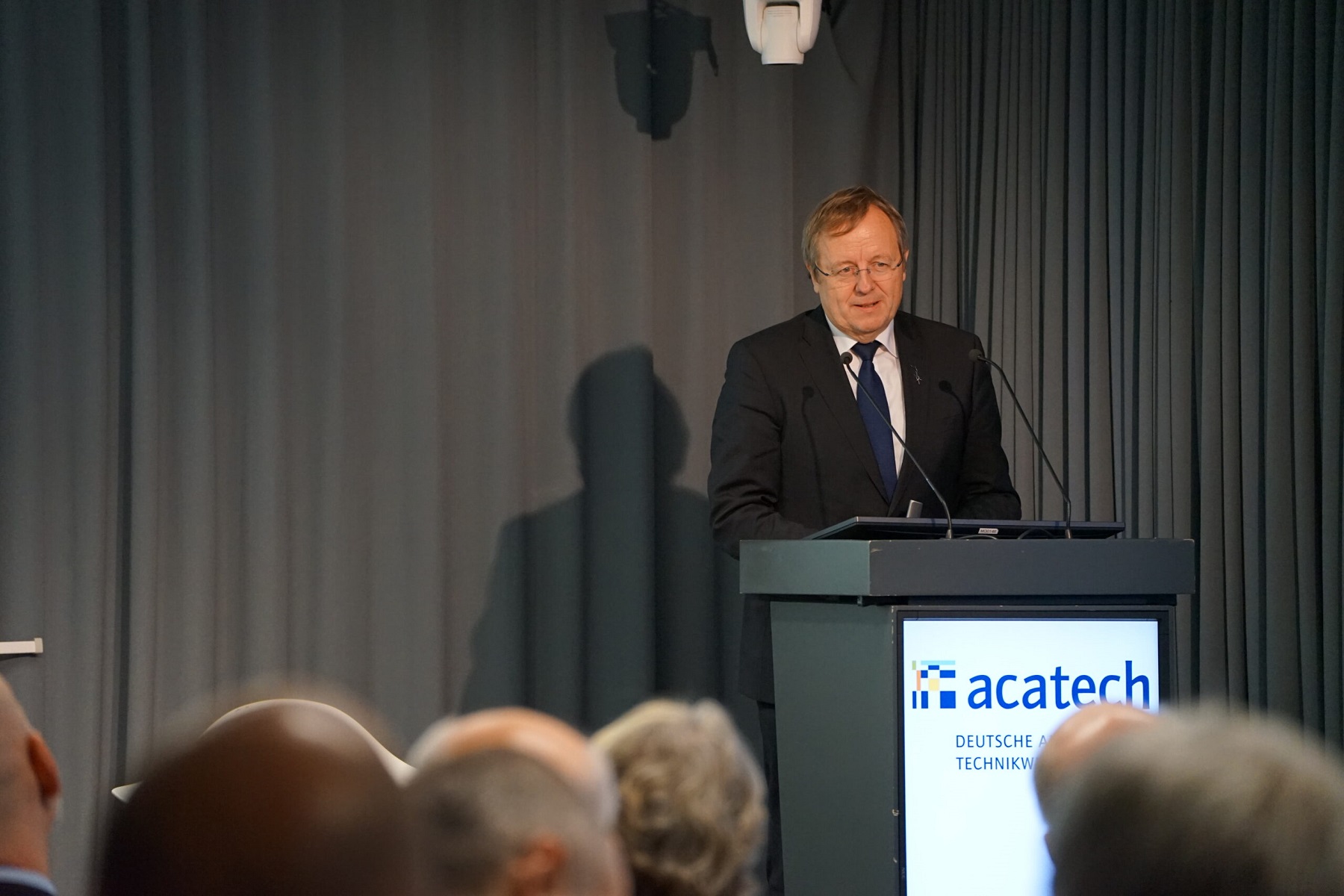
Munich, 05 December 2023
Technological change is an important prerequisite for prosperity as well as environmental and climate protection. But many people in Germany are very wary about such change. So what should effective technical communication and citizen participation look like? This was the question addressed by the acatech project “Shaping technological change”. Some initial findings were presented in Berlin on 30 November.
People need to be “brought along” when it comes to technological change, or so is the assumption. acatech President and Project Manager Jan Wörner doesn’t like this imagery: “It sounds like people are back-seat passengers who don’t know where the driver is taking them,” he said in his welcome address. It would be much more fitting to talk of carpooling, to emphasise the active inclusion of citizens in shaping technological change. This image was to be recalled to mind time and again over the course of the closing event for the project “Shaping technological change”, held on 30 November in Quadriga Forum in Berlin.
Mike S. Schäfer, Professor of Science Communication at the University of Zurich gave the first presentation of the event, focusing on the sharp increase in research on technology communication in recent decades and the key findings that have been made. The project “Shaping technological change”, on which Mike S. Schäfer advised as a member of the “Science Communication Expert Group”, is also advancing the state of knowledge.
The next presentation gave the around 60 attendees an insight into what was involved in this project. Engineer Ulrich Reimers (formerly of TU Braunschweig) and environmental planner Bettina Oppermann (Leibniz University Hannover), the leaders of the working group “Resilience and capacity of the digital infrastructure”, presented key findings of the focus groups they held as part of the project. The focus group comprising inhabitants of the small town of Wittenberge in Brandenburg, Germany, revealed which sections of the population would like which digital services in their municipality – from an online form to an app for citizens. One of the findings of the focus groups conducted in Wuppertal, which is regularly in danger of flooding due to its location on the banks of the Wupper river, is how digital technologies can improve disaster control.
Photos: acatech
What is a focus group?
Unlike individual interviews that are typically used in qualitative research, a focus group is a moderated and focused discussion within a homogeneous group of people. Its purpose is to create an exchange of views among the participants and to glean information from this exchange itself rather than gathering information from successive individual interviews.
The working group on the research project “Resilience and capacity of the healthcare system based on data availability” addresses the question as to whether a playable interactive website can be a suitable instrument to shape public opinion in relation to a complex digital innovation such as the “electronic patient record” (ePA). The website “ePA Check-up” is already a success in terms of reach at least, stated Olaf Dössel (KIT) and Petra Dickmann (Jena University Hospital), who led the working group, in their presentation, and went on to back this up with the figures: when the campaign ran in summer 2023, a total of approximately 111,000 clicks and around 70,000 website hits were registered, and almost 3,000 visitors to the website completed the ePA Check-up. The interactive questionnaire gave website users points of reference and elicited where they stand on the ePA, which every German citizen will automatically be signed up for as of 2025. An analysis of the impact on those who completed the questionnaire will be published in early 2024.
The event closed with a panel discussion with media researcher and journalist Alexandra Borchardt, psychologist Rainer Bromme, Bernd Kaltwaßer from Evonik and Claudia Kemfert from DIW Berlin. All agreed that media competence and an understanding of how science works are important for the public to be able to help shape digital and technological change. In addition, technology and science communication must make it clear at all times that questions rarely have simple answers. Such clarity brings about the necessary level of trust – the basis on which people in the carpool want to be involved and on which technical innovations can achieve their full potential.
Photos: acatech



